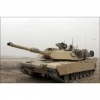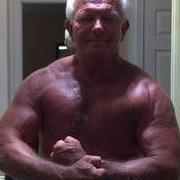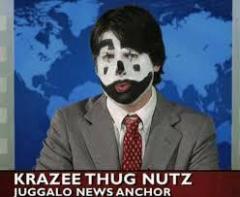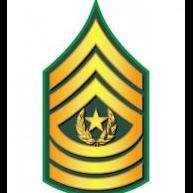
|
Leaderboard
Popular Content
Showing content with the highest reputation on 10/05/2018 in all areas
-
Bear with me as I try to post my first article here on Vets. But, with my 77th B-day coming up in 2 days, I hope you will suffer this old inveterate reader and Dinar enthusiast, when he stumbles over something (from The Daily Beast) that he finds pertinent to our interests, informative to our discussions and pretty dang positive about Iraqi - US relations. It seems to me that the results of this election bode well for RV progress. It is the most reassuring article I have found yet. (Hope this isn't a double post!) Leaked Audio Shows an Iranian Gambit to Control Iraq Failing A pro-Tehran ploy this week, caught on tape, flamed out, and now Western officials are singing the praises of the incoming leadership in Baghdad. Spencer Ackerman, 10.04.18 Earlier this week, Ahmed al-Jabouri called up Iraqi legislators with a critical request that, his Iranian patrons believed, would seal the deal on a longstanding ambition of Tehran’s: expansive control over the Iraqi government next door. Known as Abu Mazin, al-Jabouri is considered by Western officials to be among Iran’s favorite Sunni politicians in Iraq. During a frantic period of government formation in Baghdad this week, al-Jabouri implored Sunni parliamentarians from the National Axis Alliance—part of a broader coalition that includes pro-Iranian militias and other Iranian allies—to help stop a longtime pro-American Kurdish leader, Barham Salih, from becoming Iraq’s next president. “Tomorrow, in the the event of the election of Brother Barham [Salih], the Reform and Construction Coalition will become the larger bloc, and that is wrong,” al-Jabouri urged, in audio reviewed by The Daily Beast. If al-Jabouri’s interlocutors threw their support to the Kurdistan Democratic Party (KDP) and its candidate for president, Fuad Hussein, “we would announce that we are the larger bloc” in parliament. That way, they could shape the next Iraqi government, including the next prime minister, the most important political position in Iraq. But members of the alliance needed to attend a “very urgent” meeting to put the plan in motion, al-Jabouri said: “If you do not attend, everyone’s rights will be lost.” Lose they did. On Tuesday, the Iraqi parliament didn’t go for Hussein—it voted for Salih. An hour later, Salih tapped for prime minister a candidate with firm support from Washington: former oil minister Adel Abdel Mehdi. al-Jabouri’s gambit, considered a key step for Iranian hardliners, was thwarted. “This was Qassem Suleimani’s plan, and it didn’t work,” a senior Western official told The Daily Beast. That assessment goes against a consensus that has taken hold in Washington. Observing Iraq’s deeply confusing and transactional parliamentary politics, and the grinding way the next Iraqi government has come together, many think Suleimani, the head of the hardline Qods Force within Iran’s Revolutionary Guard Corps, has run the table. “The clear winner is Iran,” Sen. Marco Rubio dejectedly tweeted on Tuesday. But knowledgeable U.S. and Western officials believe that it’s more complicated than that. Iranian political influence in Iraq is a fact of life, but it’s not determinative, and they’re pointing to the composition of the next Iraqi government as evidence. The next Iraqi government is hardly going to do Washington’s bidding, they tell The Daily Beast, but the U.S. can do business with it. And, they say, the new leadership is short of what Tehran wanted to enforce its own will, particularly considering that the parliament features a strong presence from Iranian allies like ex-prime minister Nouri al-Maliki and the militia commander Hadi al-Ameri. The speaker of the parliament, decided on Sept. 15, will be Mohammed al-Halbusi. Halbusi who worked with the U.S. military during the 2003-2011 occupation, and again, most recently, as governor of Anbar province. He’s said to support a long-term U.S. military presence in Iraq. Salih, the former prime minister of Iraqi Kurdistan, didn’t just beat Hussein, he trounced him, with 219 votes to Hussein’s 22. Considered a pragmatic and moderate figure who was key to developing Kurdistan’s oil sector, Salih is particularly close with Washington. Like many Iraqi politicians, he also has ties to Iran, though not to the degree that Americans sweat them. Adel Abdul Mahdi, Westerners say, is a relief as the next prime minister. He’s a French-trained economist who was willing to work with the U.S. occupation and who got Iraq’s international creditors to cancel the country’s considerable debt. The Americans have favored him for prime minister in the past three elections, to little avail. Like both Salih and Halbusi, the Iranians can work with Mahdi, but they vastly prefer politicians like Ameri or Faleh Fayyad—a former national security adviser also tight with Iranian-backed militias—for the premiership. Iran’s regional enemies have begun signalling support for the new Iraqi government. King Salman of Saudi Arabia on Wednesday called Mahdi and Salih to offer congratulations. Both Mahdi and Salih “have real relationships with people from different communities and possess a quality often in short supply in Iraqi politics: the ability to imagine the needs and desires of a political adversary,” wrote Meghan O’Sullivan, a key Iraq policy official during George W. Bush’s administration, who called Tuesday’s government formation “a great day for Iraq.” A senior Iraqi official saw Mahdi’s elevation as a sign that Iraq, a one-time wealthy nation devastated by generations of tyranny, sanctions and brutal conflict, has a chance for an economic revival. “There are very few knowledgeable, experienced economists in the upper reaches of the Iraqi government as qualified as Adel Abdul Mahdi,” Fareed Yasseen, the Iraqi ambassador to the United States, told The Daily Beast. “Everyone recognizes the next phase in the recovery of Iraq will depend on reviving the economy, empowering the private sector and bringing about the reconstruction of the country, especially for the areas degraded and neglected because of war.” Hostilities are rising between the Trump administration and Tehran. And Iraq has been shaping up, once again, as a proxy battlefield between the two enemies—enemies who recently found themselves as uncomfortable allies of convenience against the so-called Islamic State. Rocket and mortar attacks on U.S. diplomatic installations in Baghdad and Basra led Secretary of State Mike Pompeo to close the Basra consulate last week. This week, Pompeo suggested that more violence is to come: “We must be prepared for them to continue their attempts to hit back, especially after our full sanctions are re-imposed on the 4th of November.” An Iranian government representative did not answer questions about al-Jabouri's gambit but offered similar praise for the new Iraqi government. "We congratulate President Salih on his election and Mr. Abdul Mahdi on being tapped to form a cabinet. We obviously cannot comment on political dealings in Iraqi politics, but we have always had a positive relationship with both Mr. Salih and Mr. Abdul Mahdi in furtherance of the goal of Iraq being a free, sovereign, and united nation," said Alireza Miryousefi, head of the press office of the Iranian mission to the United Nations. "We look forward to working with them and our other partners in the Iraqi government and security forces in furtherance of the aspirations of the Iraqi people and our two nations' strong political, social and cultural relations." The past 15 years of bitter, bloody experience ought to have broken American policymakers of their hubristic belief that they can control the course of events in Iraq. No Westerner interviewed by The Daily Beast considered the new government perfectly convivial to U.S. interests, nor do they consider Iranian influence in Iraq thwarted. But “the net result” of the final, furious round of parliamentary politicking, said the senior Western official, “is the most pro-Western trio of leaders in the top three positions that Iraq has ever had.” Spencer Ackerman @attackermanSpencer.Ackerman@thedailybeast.com18 points
-
Iraq’s new hope Fifteen years after George W. Bush invaded Iraq to destroy Saddam Hussein’s imaginary ‘weapons of mass destruction’, what have the Iraqis got to show for it? There was a great deal of death and destruction (around half a million Iraqis have died violently since 2003), but they do now have a democratically elected government. Sort of. Iraqis voted in their fourth free election last April – or rather, fewer than half of them bothered to vote at all, so pessimistic were they about the notion that voting can change anything. And after the election, the politicians seemed to be living down to their expectations. Almost six months later, the many political parties were still bickering over which of them would be in the government, which would give them access to the huge amounts of money that are available to government ministers in one of the world’s most corrupt countries. It looked like business as usual, despite bloody riots in the south (where most of the oil is) over chronic shortages of water, electricity, and jobs. But on Tuesday the Iraqi parliament elected a prominent Kurdish politician, Barham Saleh, to the largely ceremonial office of president. The president then has fifteen days to nominate the new prime minister (who really runs the government), but Barham Saleh did it within hours. The new prime minister will be Adel Abdul Mahdi – which may be a signal of big changes coming. Abdul Mahdi is not himself a revolutionary figure. He is a former finance and oil minister who, like Barham Saleh, has been a familiar fixture in Iraqi politics ever since the invasion. (A stock Iraqi joke claims that the country has the most environmental government in the world, since it constantly recycles its old politicians.) But Abdul Mahdi is the figurehead of a coalition in which a revolutionary outsider, Muqtada al-Sadr, will be the dominant influence. Sadr’s party astonished everybody by winning the largest number of seats in the May election, drawing its support mainly from working-class Shias in Baghdad and the south, but his non-sectarian stance also drew votes from the marginalised Sunni minority of Iraqi Arabs. His party has been among the least corrupt on the Iraqi political scene, and he is a nationalist who is equally opposed to American and Iranian meddling in Iraqi politics. He has disbanded his own party’s militia and urges others to do the same, and he promised to appoint non-political technocrats instead of usual party stalwarts if his party won power. That promise will be hard to keep, since the extreme fragmentation of Iraqi politics means all governments must be broad coalitions. The coalition Sadr leads (although he will not personally seek office) includes the Iraqi Communist party, which more or less shares his goals, and the group led by former prime minister Nouri al-Maliki, which emphatically does not. Maliki, in power from 2006 to 2014, proved himself to be viciously anti-Sunni, largely subservient to Iranian interests – and, of course, monumentally corrupt. It will be very difficult to hold this coalition together, let alone to carry out Sadr’s programme of sectarian reconciliation and government by technocrats. Corruption in Iraq is a system, not a series of individual crimes, and the beneficiaries of the system will fight tooth and nail to preserve it. The parties use it not only to finance their own activities and reward their own members, but to build a large support base through bribery, mostly in the form of jobs. There are 37 million people in Iraq. In most other countries, a population of that size would require around 600,000-700,000 employees to provide all the normal functions of a central government. The Iraqi government employs 4.5 million people to do the same jobs very badly or not at all. Many of them rarely even show up at work, but they and their families all vote for the right party at election-time. And since they are on the take themselves, they don’t protest when the senior politicians in their party steal millions (or in some cases billions) from public funds. This system was tolerated during the fifteen years of war because people’s first priority was survival. Now that the fighting has died down, people are starting to protest, and Muqtada al-Sadr has become the repository of their hopes. He will have a hard time living up to them. http://www.hurriyetdailynews.com/opinion/gwynne-dyer/iraqs-new-hope-1375399 points
-
Your Trump hatred is showing. I am only referring to his rally and the misguided professor. She can't remember details and all of the people she says were there all deny it. Burden of proof is on her and she can't. That is truth.7 points
-
7 points
-
What the heck is going on here? Are you guys trying to make my day. After a long day at the asylum i am catching Starider and Laid Back exchange. You guys are making me feel like this is coming to an end. I want to thank everyone else for adding to this post. I will have to start from the beginning and get all the info. THANKS EVERYONE.7 points
-
Thank you all for your best wishes and your support. Now let's get this RV while my wife (the Dutchess) and I can still enjoy it! LOL6 points
-
I agree here.....The more I think about it, if they release a bunch of these new lower notes, they will draw in a few more larger 5K, 10K and 25K notes while people grab these for daily affairs. Any note lower than this is worthless without a rate change. These are on the border of being worthless, but the people are needing them. I expect greater things SOON, especially if Mahdi has his cabinet picked and presented next week. It looks like he may. Everything happening now looks like it has already been planned and is just being implemented.6 points
-
Has anyone thought of this scenario... The new government has more Iranian influence. We all know the Iranian economy is in shambles and the new US sanctions take affect in November. Could Iran be holding hundreds of millions of Iraqi Dinar and pressing for a revalue of the Dinar to save the Iranian economy and prevent a revolution in their country? THIS IS JUST A THEORY AND HAS NO CREDIBLE BASIS... JUST A THOUGHT...6 points
-
6 points
-
Interesting timing of this article.... a day after the president and PM are appointed The CBI had a plan to release the 100,000 IQD note but they decided to delay them. They don’t want the note to be storage or falsified They plan to restructure the currency They plan to delete the 000 They plan to release small groups The bank is trading all categories of the dollar and all previous editions even before 2006. This is what I think..... just my humble opinion The 100,000 iqd will never see the light... They are going to delete the 000 from local currency, meaning that they’re going to collect the majority of the 000 from the streets in Iraq.... So why put more 000 in circulation (100,000) it doesn’t make sense They plan to release small groups notes.... I believe they are taking about lower denominations notes with more value, equal or higher than the dollar. At the end of the article they talk about the dollar..... We (cbi) trade all categories of the dollar even before 2006. Dollarize.... RV..... Dedollarize Go CBI Go delete the 000 Go lower denomination notes Go $1:16 points
-
Helps when you shut down the Mens Room until someone makes a move.5 points
-
That is a very good theory! I saw something about this on Youtube a few weeks ago and found it pretty interesting indeed. There are a lot of strange things going on suddenly in regards to money and the world at large. I got an email out of nowhere yesterday from a dinar dealer stating they were now doing direct deposit for foreign currencies. Never seen that before. Of course the "Emergency Text Alert" the other day really had me thinking that soon very very soon something could come up in regards to currency as a whole. Also to add that Iraq not only picked a president without a hitch and then he picked his PM within a few hours shows me that we are truly about to get some big news. Its this weird feeling going on right now. I compare it to this feeling of butterflies in the stomach, when you know you something good is about to happen but you don't know exactly when.5 points
-
Agreed. Oh, your signature... I felt like something was missing5 points
-
NEW TORK: UN Secretary-General Antonio Guterres said he hopes for the “swift” formation of an “inclusive” Iraqi government following the election of the country’s president. Don't we all !5 points
-
5 points
-
Agree 10 years. He needs to be in jail or at minimum be forced to give back what’s left of his 50 b he stole.4 points
-
As of 15:45 pm Arizona time, not heard a peep about Weasel Maliki . . . A couple of buddies I worked with in Kuwait ( seems like a lifetime ago ) said they were looking . . . Nada 3n1 Right now I'd go for sticking "M" in a cage full of rabid weasels though . . . I'm sure we can find more where this little guy came from.4 points
-
The new President should be in charge of the RV. He pulled the trigger on the new PM in 2 hours. That has to be a world record.4 points
-
I’m sure he’ll surface somewhere in this government. I’ve been watching this corruption thing pretty carefully to see who they go after. I hope it’s not just election rhetoric. They need to go after people like Maliki and confiscate his 50 b. he stole from the Iraqi people.4 points
-
Can Iraq’s new PM deliver reforms and fight corruption? October 05, 201819:34 Three weeks before he was named Iraq’s prime minister-designate, Adel Abdul-Mahdi wrote an editorial in which he argued that the position should not be about the person in the role, but instead should be all about “rules and institutions.” He said that the authority of ministers should be bound by regulations, and demanded a strong judiciary, the establishment of an anti-corruption police force, and auditors to surveil the government. However, judging by the parliamentary blocs that underwrote his selection this week, as well as his past performance, many Iraqis expressed skepticism over how far he can take the fight against corruption. Abdul-Mahdi was previously vice president. And between 2014 and 2016, he served as oil minister. Harith Hasan Al-Qarawee, a fellow at the Central European University in Budapest, questioned how the groups that put forth Abdul-Mahdi’s name would allow him to embark on the structural change that Iraq desperately needs. “Abdul-Mahdi’s premiership was the result of a deal that might not last, and that might leave him alone without any bloc behind him in Parliament.” Al-Qarawee went on to say that “without a bloc of his own, how can he sustain his support ... while at the same time embark on reforms by taking on the blocs that support him?” Further complicating Abdul-Mahdi’s mission, according to the Iraqi scholar, is a “new factor — a restless Iraqi street.” Over the past few months, Basra and many other southern Iraqi cities have witnessed riots that sometimes turned deadly. The experience of other countries that have witnessed sweeping changes might be instructive. Change usually is the result of a shift in the political culture, reflecting a swing in the popular mood. Had Abdul-Mahdi made it to the premiership at the head of a reform movement, or had he built a parliamentary coalition around his vision of reform, as spelled out in his editorial, change might conceivably be on the cards. But it is unlikely that a prime minister who owes his job to the same groups that have been accused of corrupting the state will be able to fix the country. Judging by their past experience with Abdul-Mahdi, many Iraqis believe he is not even willing to reform. Social media has been buzzing with speculation. Haidar Hassan Kazem, a soccer player with a considerable following on Twitter, questioned the wisdom behind “rewarding” Abdul-Mahdi. “He served as the minister of finance, the minister of oil and as the vice president,” Kazem tweeted. “What has he achieved in his previous roles? And did he ever succeed in the past for us to reward him and make him prime minister?” Abdul-Mahdi’s past failure has not been the only concern for Iraqis. Footage widely shared on social media shows him with fighters of the Badr militia, an Iranian-sponsored paramilitary group. Iraqis are also unsettled by Abdul-Mahdi’s apparent political opportunism. Throughout his long career, the 76-year-old prime minister-designate has often switched sides with seeming ease. He started out as a Baathist, then became a communist before reinventing himself as an Islamist. In 2003, he began to recast himself as a moderate Islamist. He also styled himself as someone who could mediate between Washington and Tehran, a role that many other Iraqi politicians raced to play, hoping that such a triangulation would allow them to win the approval of both America and Iran and make them “consensus candidates” for top government jobs. And of course, consensus candidates, like Abdul-Mahdi, are usually colorless individuals who avoid taking difficult positions on equally difficult issues — which are legion in Iraq. It is not a status that augurs well in a prime minister. Tired of endemic corruption and the failure of successive governments, Iraqis have little choice but to hope that any kind of change might be for the better, even if it involves the elevation of an establishment politician to the top spot. But with someone who has achieved as little as Abdul-Mahdi in his previous jobs and who owes his premiership to the corrupt politicians he promises to eliminate, it is only normal for Iraqis to express skepticism, if not outright rejection, of Abdul-Mahdi’s accession. http://www.arabnews.com/node/13831064 points
-
Building Alliance MB asserts that Abdul Mahdi can move strongly in gov' formation FacebookTwitterGoogle+EmailWhatsApp Adil Abdul Mahdi Building Alliance MP, Hassan Shaker Odah stressed Friday that the Prime Minister Adil Abdul Mahdi should form his government upon the qualifications of the candidates, not for their political background. He asserted that Abdul Mahdi can move strongly in forming the next government, given the fact that he is nominated by the most influential Iraqi political parties. “The support of the Iraqi president and parliament’s speaker to Abdul Mahdi represents should give him the necessary power he needs,” Odah added. "Abdul Mahdi can benefit from the experiences of former ministers," he pointed out. “There are many issues waiting for Abdul Mahdi to address in the fields of education, health, infrastructure, security, economy, and commerce, in addition to many external files related to water and the international agreements,” he said According to Iraq’s constitution, the Prime Minister has exactly 30 days to form the government. https://www.thebaghdadpost.com/en/Story/31969/Building-Alliance-MB-asserts-that-Abdul-Mahdi-can-move-strongly-in-gov-formation4 points
-
http://www.basnews.com/index.php/en/news/iraq/470744 ERBIL — Iraqi influential Shi’ite cleric and the leader of Sairoon bloc, Muqtada al-Sadr, has given one year timeline to the new Iraqi government, after its establishment, to implement reforms. Sadr said in a statement on his official Twitter account that Adil Abdul-Mahdi, who is now assigned to form the new Iraqi government, will be under watchful eyes of Sadr for one year after its formation. Sadr expects the new government to fight corruption in the country. He hopes that Abdul-Mahdi will be able to maintain an impartial position as the prime minister and avoid being influenced by a certain political party. The Shi’ite leader also warned that they will rise against Abdul-Mahdi’s government if it fails to address the crises in Iraq.4 points
-
Wishing you a very happy birthday pokebu!! I think an October RV would be a wonderful and appropriate gift 🎁 💰🎉👍🏻4 points
-
4 points
-
Thanks I just think it’s odd, that Iraq that has been dragging its feet for years!!!! Has suddenly elected a president and within hours picked a PM we didn’t see on the radar and now all this talk of pumping lower denominations that are currently worthless..... added to the fact that XRP the banker’s coin (alleged by most crypto traders) just went live this week with xrapid for cross border payments (Bill Globalist Clinton was a key note speaker at the event) I just feel like too many coincidences in one month.... idk4 points
-
I'll pay the $250 grand, but I get to pick a senator to go in my place!4 points
-
Oh oh. Who got you started again. I love to laugh, hahahaha. You remind me of the uncle from marry poppins. When he started to laugh he couldnt stop and he would start to fliat to the ceiling. Hahahahah, and he would get everone laughing. Its good to see people smile and laugh. It says alot about a person. Even though, its not sincere sometimes it is contagious. Take care.4 points
-
Or better yet ! What the heck is " drop zeros " mean in normal terminology ? ( Not Iraqi speak ) 😀4 points
-
www.alsumaria.tv/news/249160/بالصورة-البنك-المركزي-يقرر-طرح-كميات-كبيرة-من-الفئ/ar......... The central bank decides to put large quantities of small groups in a new way Edited By Ravid Sabar - Thursday, October 4, - + Al-Sumerian News / Baghdad The Central Bank of Iraq announced on Thursday the release of large amounts of currency for small groups next week, adding that the groups will include a change in form. The bank said in a statement received by Alsumaria News a copy of it, "it will subtract large quantities of small categories to meet the need for daily transactions and the quality of the material has been improved." The bank added that "a simple change will be made in the new form that will be put forward for trading next week, knowing that the deal will be in the old and new form together without discrimination."4 points
-
UN chief hopes for ‘swift’ formation of Iraqi government October 05, 201803:03 After being as Iraq’s new president on Tuesday, Barham Salih tasked Prime Minister Adel Abdul-Mahdi with forming the next Iraqi government The 76-year-old Abdel Mahdi, a former Iraqi vice president, has proven political credentials and is seen in Iraqi circles as an independent NEW TORK: UN Secretary-General Antonio Guterres said he hopes for the “swift” formation of an “inclusive” Iraqi government following the election of the country’s president. “The secretary-general hopes the election of the president will pave the way to the swift formation of an inclusive government in line with constitutional timelines,” Guterres said in a statement that also congratulated Barham Salih on his election as the Iraq’s new president. Salih tasked Adel Abdul-Mahdi — who is seen as an independent — with forming the next Iraqi government late on Tuesday, only hours after being elected. The prime minister designate faces an uphill task of bridging differences among sharply-divided Iraqi political parties. The largest bloc traditionally appoints the prime minister and presides over the formation of the next government, but the exact contours of a new governing coalition are yet to be drawn. Outgoing Prime Minister Haider Abadi threw in the towel last month after weeks of deadly protests sparked by anger at the poor services in Iraq’s south cost his fragile alliance the support of populist cleric Moqtada Sadr. Several different blocs in the Iraqi Parliament are jostling for power following the May elections — in-fighting which had so far stymied the formation of a new government. The largest bloc traditionally appoints the prime minister and presides over the formation of the next government. But the exact contours of a new governing coalition are yet to be drawn. Sadr’s list won the largest share of seats in the May polls. And after dumping Abadi, it swung behind the pro-Iran bloc led by Hadi Al-Ameri’s Conquest Alliance — a coalition of anti-extremist veterans close to Tehran. A spokesman for Conquest Alliance, Ahmad Assadi, said late on Tuesday that “the largest coalition resolved the issue by naming the prime minister” hinting his bloc had supported Abdel Mahdi’s nomination, but without offering up any concrete evidence. Iraq has a proportional system designed to prevent a slide back into dictatorship following the 2003 ouster of late dictator Saddam Hussein. The largely ceremonial role of president, now taken by the 58-year-old Saleh, has been reserved for the Kurds since Iraq’s first multi-party elections in 2005. The 76-year-old Abdel Mahdi, a former Iraqi vice president, has proven political credentials and is seen in Iraqi circles as an independent. In a country long a political battleground between the US and Iran as they fight for influence, he is regarded as a rare figure of consensus. An economist by training, he was once a senior member of a party close to Iran. But he has also won the backing of US and European leaders. In 2014, Abdel Mahdi took up the post of oil minister under Abadi before resigning two years later. Now he has just 30 days to navigate tangled Iraqi politics and form a government. If he fails, then another candidate will have to be chosen to pick up the baton. A native of Baghdad, Abdel Mahdi is nonetheless credited with having good relations with a number of Kurdish leaders. This could be crucial, coming a year after a disastrous referendum in which Iraqi Kurdistan voted overwhelmingly for independence. http://www.arabnews.com/node/1382771/middle-east4 points
-
Heitkamp will not be re-elected in November. Indy4 points
-
Starr, thanks for your input. I think the lower denomination notes will come out with new added value equal or higher than the dollar, to collect the 000 notes in the local market. Then the new note and the old note will coexist for a period up to 2 years and then its tissue paper. 😂😂😂Thanks my friend 3n1👍🏻4 points
-
4 points
-
Middle East UN removes 17 Iraqi 'entities' from Saddam-inspired sanctions since June John J. Catherine | 3 hours ago United Nations headquarters in New York. (Photo: Archive) Iraq UN Baghdad SaddamHussein ERBIL (Kurdistan 24) – The United Nations Security Council (UNSC) has recently stepped up a process of removing various Iraqi individuals, companies, and institutions from sanctions imposed on them in 2003 for having perceived connections to ousted leader Saddam Hussein. The sanctions sought to freeze assets of over 200 “entities” and went into effect days after the controversial UNSC Resolution 986 in place since 1995, known as the “Oil for Food” program, was discontinued. They were enacted after a UN committee was set up to investigate financial assets that were thought to have been removed from the country by those connected to the former Iraqi president. For a decade and a half, the UN intermittently announced the removal of one or two entities from the list with months or years passing between them. In June, the pace picked up, and 17 have been taken off the list between then and the beginning of October. At this point, the announcements appear to be of largely symbolic importance, since such high-profile government agencies as the Central Bank of Iraq, which implements Iraq’s monetary policy, holds its reserves of gold, and issues its money, remained on the list until this June. On Aug. 29, former Prime Minister Haider al-Abadi confirmed that Baghdad was planning to send a delegation to the United States to seek an agreement granting it exemptions from Washington’s current sanctions on Tehran. He said this was needed because Iraq’s economy is highly interlinked with, and dependent on, Iran’s. “We have presented a clear vision of what Iraq really needs,” Abadi said during his weekly press conference in Baghdad. “This includes Iranian (natural) gas, which is very important, as well as other trade and the electricity sector.” The Iraqi prime minister also called the economic embargoes on Iran “unilateral” and “oppressive,” adding that his country would not be “part of a blockade” due to its own bitter experience with sanctions. Editing by Karzan Sulaivany4 points
-
Well, he has the support of Sadr, who is not fooling around. I feel good about this guy. Lets see how the 30 day window works out.3 points
-
Collins is a 👍! Manchin is a 👍! That’s it, as it stands right now, Kavanaugh will get confirmed!3 points
-
3 points
-
Don't know if any here know the name Neal Boortz. He is a lawyer from Texas, radio commentator and Texas A&M alumnus. He gave this year's commencement address at A&M. A bit long but in the bombing lingo of the "Fighter Pilot", "Bullseye One"!!! Hope you enjoy it as much as I did.3 points
-
Hey Shabs, I assume you are referring to the all white crowd in Minnesota. Well the crowd looked different in Mississippi. My wife and sat next to a Latino lady at the rally. She said she and her family were huge Trump supporters and many of her Latino friends the same. She hated illegal immigration and wanted the wall. She drove over an hour by herself to attend this rally. Her husband was working and could not attend, so she came from TN to MS for the rally. The African American supporters were there also. Many more than I would have imagined. A very pleasant surprise. Maybe Trump's economy is helping the Black community as well as lifting up ALL communities. Many of them are leaving the DemoRat's plantation. It was very encouraging to be there and see this. JMHO!3 points
-
Invest $250K with Iran and they will put you up for free in a well secured one-room home. Amenities include well-secured door locks, great ventilation on three sides. Complete with furnishings to include a mattress bed with free linens, a toilet and sink and community showers. Lots of activities to do such as walk in our fenced in park, play the shank or be shanked game. Who knows you may end up falling in love with a neighbor. Come invest and live in Iraq where we not only take your money but we also take your freedom as well.3 points
-
3 points
-
Where's that wall! And the ignorant thinks it's just Mexicans crossing the border3 points
-
So lets resort to blackmail and extortion. Throw out the Rule of Law and Presumption of Innocence. Just wait till one of the yahoos gets accused of the same thing and watch how quickly they chew up the accuser.3 points
-
3 points












.thumb.jpg.97c272fdb311a3a5e823d5b791738eb3.jpg)











